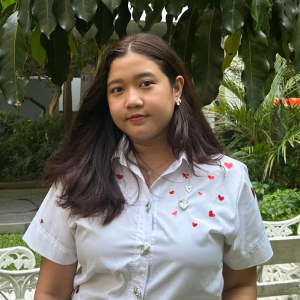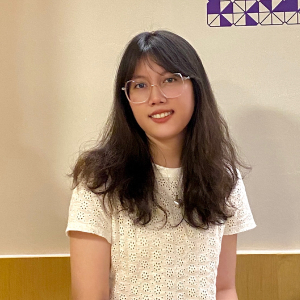Sustainable Energy Transition (SE)
Master Degree

Free consultation for this program
We are ready to help you with your difficulties and processing.
Duration
2 years
Study Format
On Campus
No. of Student Mentors
72
Total Tuition Fees
855,600 THB





Free consultation for this program
We are ready to help you with your difficulties and processing.
Duration
2 years
Study Format
On Campus
No. of Student Mentors
72
Total Tuition Fees
855,600 THB





Program
Key information
University
Program structure
Tuition fees
Admissions
Possible Career Pathway
Student's testimonials
F&Qs
ABOUT THIS PROGRAM
This interdisciplinary program encompasses clean energy transition technologies, policy, environmental, social and management aspects. Graduates from this program will be able to address the challenges of energy transition, especially in the areas of low carbon electricity supply systems, reduction of energy intensity, and providing energy access to all physical and geographical areas.
The main goal of this program is to prepare students to face the impending challenges in the global energy sector through strategic state of the art knowledge, tools and research skills to support technology, market, business, finance and policy development. This is expected to prepare them to deliver solutions-oriented knowledge and innovative practices for cleaner energy transitions for human progress.
FOCUS AREAS
- Improving Energy Access
- Climate Change Mitigation
- Renewable energy Technology Diffusion and Integration to Energy System
- Smart Grid and Microgrid
- Application of IoT, Big Data, and Blockchain Technology in Energy Systems
- Electric and Hybrid Electric Vehicles Technology Diffusion
- Energy efficiency and energy storage
- Energy Policy Analysis
- Cross-border Electricity Trade
- Carbon Market and Finance
Research Areas
- Improving Energy Access, Synergies and Tradeoffs with other SDGs
- Bioenergy and Biofuel Productions
- Evaluation of Energy Policies and Policy Impact Analysis
- Energy Storage Technologies and its Applications
- Pricing, non-economic Incentives and System Changes
- Techno-economic Assessment of Renewable Energy Technologies
- Regional Electricity Trade, Barriers and System Integration
- Deregulation and new Business Opportunity in Electric Supply Industry
- Regional Power Grid Integration and Management
- Application of AI and Machine Learning in Energy Systems
- Power Sector Modeling/Planning with Variable Renewable Energy Integration
- Energy Efficiency and Barriers in buildings and industries
- Smart Grids and Microgrids
- Smart Grid for Large Scale Variable Renewable Energy Integration
- Challenges and Opportunities in Electrification of Transport Sectors
- Electric and Hybrid Electric Vehicle Technologies
- Clean coal technologies
- Carbon Capture and Storage
KEY INFORMATION
Degree
Master
Language
English
Location
Thailand
Intake Start Date
Jan 2026
Study Format
On Campus
Duration
2 years
Program Highlight
Standard Program
Total Semester
4
Total Tuition Fees
855,600 THB / in total
Application deadline
Jul 2026
ABOUT UNIVERSITY

Asian Institute of Technology, 58 Moo 9, Km. 42, Paholyothin Highway, Klong Luang, Pathumthani 12120, Thailand, Khlong Nueng, Pathum Thani 12120 Thailand
Asia Ranking 2026
EduRank Ranking 426
Programs
91
Students
Not Provided Yet
The Asian Institute of Technology (AIT) is an international English-speaking postgraduate institution, focusing on engineering, sustainability, and management studies. AIT’s rigorous academic, research, and experiential outreach programs prepare graduates for professional success and leadership roles in Asia and beyond.
Founded in 1959, AIT offers the opportunity to study at an institution in Asia which possesses a global reputation. Going forward, AIT will be stressing its global connections, injection of innovation into research and teaching, its relevance to industry, and its nurturing of entrepreneurship, while continuing to fulfill its social impact and capacity building role. Sitting on a beautiful green campus located just north of Bangkok, Thailand, AIT operates as a multicultural community where a cosmopolitan approach to living and learning is the rule. You will meet and study with people from all around the world.
Today, AIT’s internationally recognized engineering, environment, and management graduates are highly sought after by employers in their home countryand elsewhere. Across many walks of life in Asia, AIT alumni have distinguished themselves as CEO’s of private and state enterprises, as business owners, as well-respected researchers and faculty, and as senior university and government officials.
See more
PROGRAM STRUCTURE
Curriculum
- Core Modules in Sustainable Energy Systems
- Electives on Renewable Energy and Policy
- Research/Project Component
TUITION FEES
Tuition fees
855,600 THB / in total
Application fees
800 THB
Application fee cannot be refunded.
Get a Free Consultation!
Not sure where to start with your application?
Our student ambassadors can walk you through the admission process, step by step.
ADMISSIONS PROCESS

- Hold a Bachelor’s degree (normally from a four-year program), or its equivalent, in an appropriate field of study from an institution of good standing acceptable to AIT;
- Have undergraduate grades significantly above average; the minimum cGPA requirement for admission to the Master’s Program is 2.75 or equivalent, at the Bachelor’s degree level;
- English Proficiency Requirement: AIT-EET: 6; IELTS Academic: overall 6 (writing 6); TOEFL iBT: overall 80 (writing 21-23); & PTE Academic: overall 52 (writing 62-73)
- Be in satisfactory physical and mental health, and have a record of good conduct;
PREFERRED BACKGROUND
What is the background a student must have to attend the program?
We welcome candidates with degrees from an institution of recognized standing, preferably in engineering, management, economics, social sciences, and other related fields.
Our curriculum is intended not only for fresh graduates but also for professionals from energy utilities (including power utilities), municipalities, regulators, energy ministries/authorities, private companies, consulting companies, academia, NGOs, city and municipal authorities dealing with or interested in the sustainable energy transition
Possible Career Pathway
A career in Sustainable Energy Transition (SE) can lead to roles in renewable energy development, energy policy analysis, smart grid and microgrid design, and sustainable transportation technologies. Graduates may work as energy analysts, project managers, or consultants in government agencies, international organizations, or private sector companies. They might focus on implementing clean energy solutions, improving energy access, integrating advanced technologies like AI and IoT into energy systems, or contributing to climate change mitigation through carbon management and policy development. This field offers a dynamic pathway for those passionate about advancing global energy sustainability.
STUDENT's TESTIMONIALS
No testimonials available just yet — stay tuned!
FAQs
Question :
Can I apply to two Academic Programs at the same time?
Answer :
No. You can only apply to one academic program at any time.
Question :
Do you have academic exchange programs and scholarships for those?
Answer :
2 Year Master’s Degree students normally study for 22 months (enrolled in August Intake) and 24 months (enrolled in January Intake) which includes four semesters, two short breaks and one long break between semesters. Doctoral students study for at least 42 months or seven semesters. 1-year Master, Professional Master Program and the Diploma Programs are at least 12 months or two semesters and the Certificate Program is 5 months or one semester.
Question :
What are Unified programs?
Answer :
Unified Programs integrate undergraduate studies with graduate studies into a seamless “Unified” program. For example, undergraduate students may join AIT in their final year to complete their undergraduate degree and at the same time start their Master program at AIT. AIT has several Unified programs with partner universities managed by Office of Special Degree Program.
Question :
What is the AIT English Entry Test (AIT-EET)?
Answer :
The Language Center (LC) offers a 90-minute in-house test of English proficiency called the AIT English Entry Test (EET). The score is based on a nine-point scale similar to the IELTS test. The Writing score, which is the most important at AIT, is based on an essay. The test result will be e-mailed within 7 days. The LC will report the test result to the AIT Admissions only if the score is satisfactory for provisional admission. If applicants fail to obtain the minimum score requirements for admission, they may take the test again.
Question :
Will you waive my admission interviews since I was admitted last year but chose not to register?
Answer :
No. As the application assessment varies from each intake, your application in the next intake must be as competitive as those with others applying in that same intake.
Question :
Do I need to apply for the scholarships listed on the website?
Answer :
You do not need to apply separately for the scholarships. Once you have submitted the application online, your will be automatically considered for all scholarships for which the deadline has not expired and for which you are eligible. The type and amount of scholarship given to applicants is on a competitive basis with the main criteria of academic standing. Should you wish to be considered for full scholarships, you must submit an Official English score of 6 including writing and overall that is not older than 2 years.
Question :
How much is the application processing fee?
Answer :
The processing fee is Baht 800 or US$25.
Question :
If I apply and accepted this intake, can I defer to the next intake with the same condition?
Answer :
Yes, you can defer your entry until the next academic semester. However, the financial conditions of the admission may change depending on the competitive assessment for the next semester. You are also required to pay the application processing fee to reactivate your admission.
Question :
When is the school intake and the application deadline?
Answer :
The AIT academic year consists of two semesters: January and August for School of Engineering and Technology (SET) and School of Environment Resources and Development (SERD).